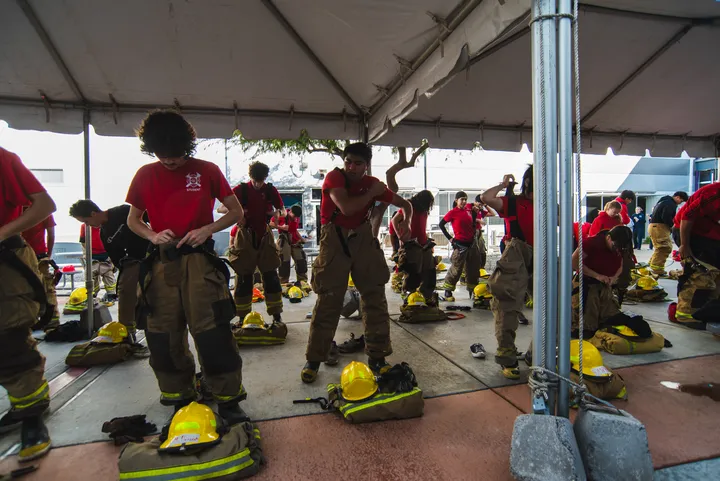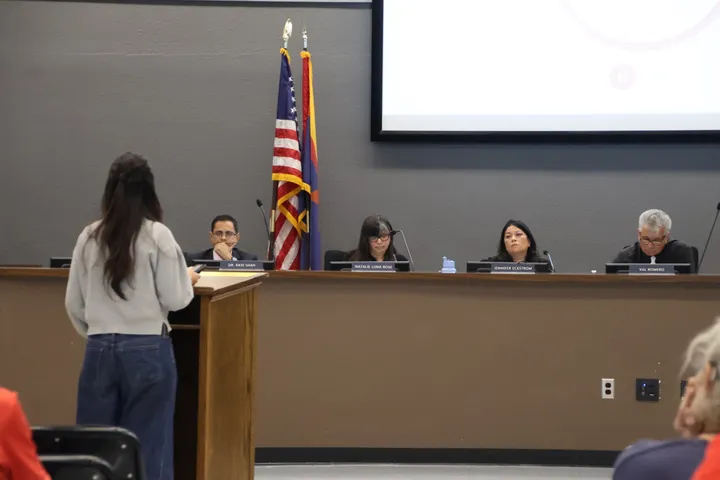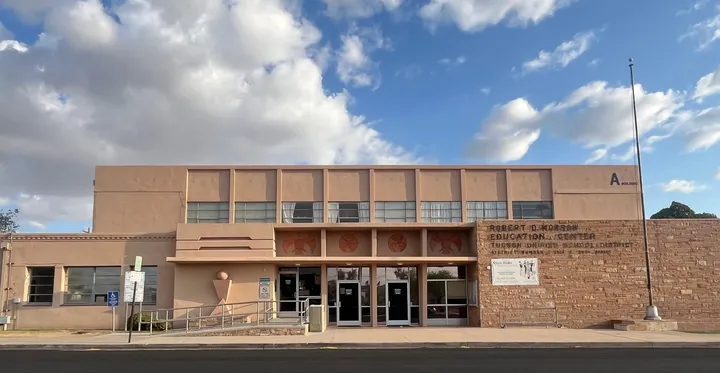TUSD unveils first electric school bus amid EPA rollbacks
Tucson Unified School District introduced its first electric school bus Thursday, advancing its Climate Action Plan to reduce emissions and protect student and staff health despite federal rollbacks on emission regulations.
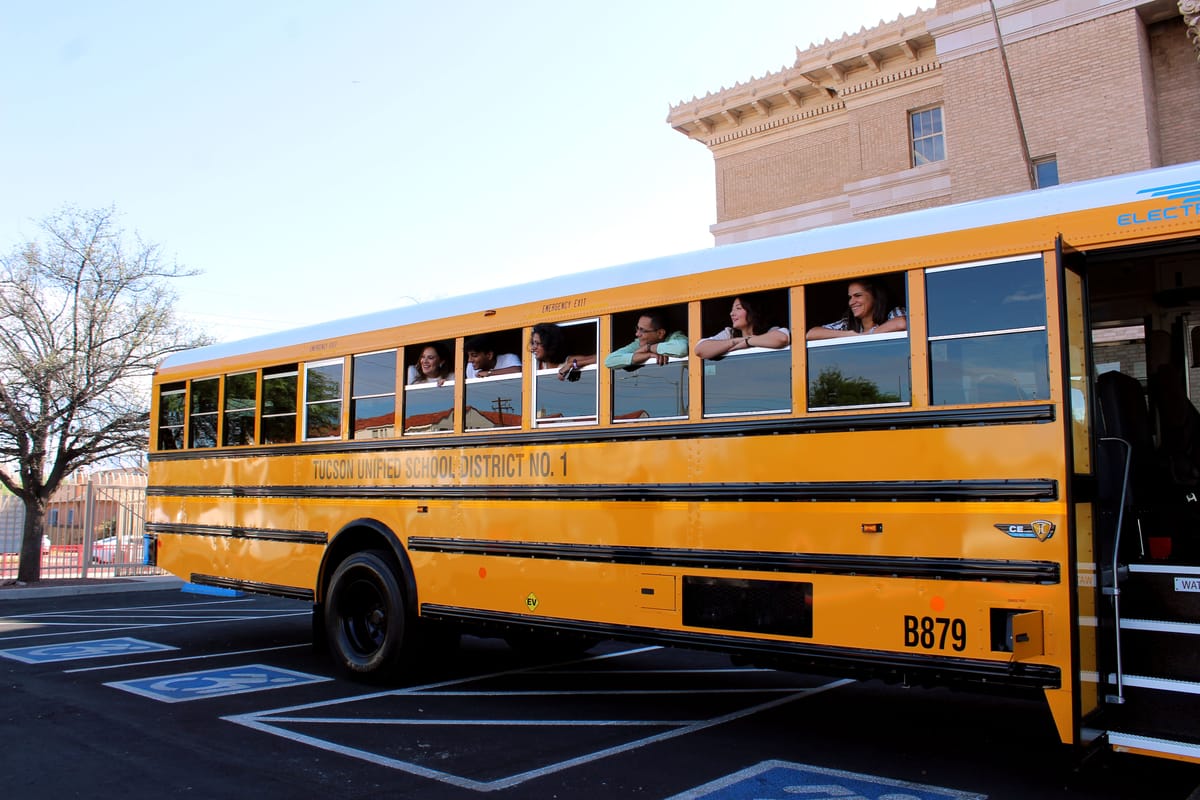
Tucson Unified School District unveiled its first electric school bus Thursday, marking a milestone in the district’s push for cleaner transportation amid federal rollbacks of emission regulations.
The move, part of a Climate Action Resolution passed in May, aims to reduce pollution, protect student and staff health, and set the stage for a fully electric fleet by 2040.
“School districts across the country [are] investing in electric school buses because it was the right thing to do for the health of students, for the health of the school bus drivers, for the health of the teachers standing alongside us in school and for the health of neighborhoods,” said District 3 Pima County Supervisor Jen Allen, who is also a representative on Pima County’s Board of Health.
Allen and others have put pressure on local, state and national organizations to advance climate, social and racial justice.
“I’ve carried those values with me to the Board of Supervisors while I was working with the League of Conservation Voters,” she said.
TUSD’s Climate Action Plan, the most comprehensive in the state, was written by the Arizona Youth Climate Coalition and calls for net zero emissions and fully electric vehicles by 2040.
Emissions from diesel school buses have been linked to worsening cardiac disease, birth defects and cancer rates, said Dr. Ravi Shah, a TUSD board member and family medicine physician. He said he sees many children in his clinic suffering from asthma or other breathing issues.
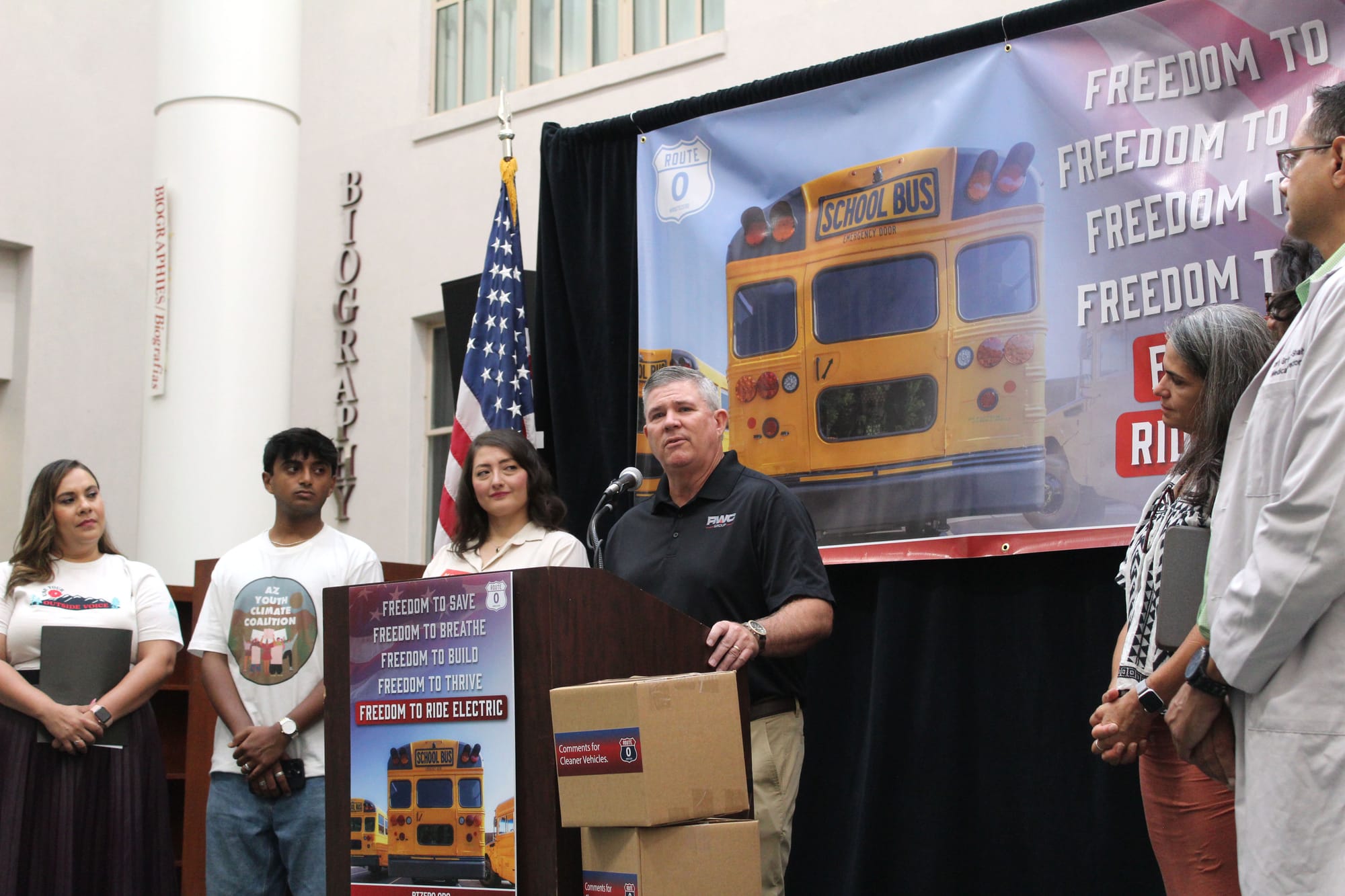
In Pima County, 60,000 students have asthma.
“With 2.8 million miles driven, our school district is a significant contributor to our polluted local air,” he said.
TUSD will receive an additional 10 electric buses by mid-September that will be fully operational by October, said Tom Hartman, general manager of commercial truck and bus dealership RWC.
Hartman said the buses can travel up to 130 miles between charges.
“We’re very proud of that project. School buses are the safest form of transportation in the world and now they’re going to be the cleanest in the world,” Hartman said. “Our journey started a couple of years ago when we decided to be the lead applicant on a grant for the Environmental Protection Agency’s clean energy bus program.”
While the program enjoyed early success, phases four and five of the plan are on pause due to a July EPA initiative rolling back emission regulations on heavy-duty diesel trucks.
Hartman said the rollback is stalling the rest of the $5 million grant funding the shift to clean energy.
“It’s really demoralizing,” said Ojas Sanghi, a University of Arizona student and co-lead for the Arizona Youth Climate Coalition.
While the news about the plan being put on hold is disheartening, Sanghi said seeing the hard work the group put into developing the Climate Action Plan pay off feels great.
“They represent hope every day as I and other youth struggle with climate anxiety,” he said, warning that the move to rollback zero-emission initiatives could create additional health issues that could be prevented.
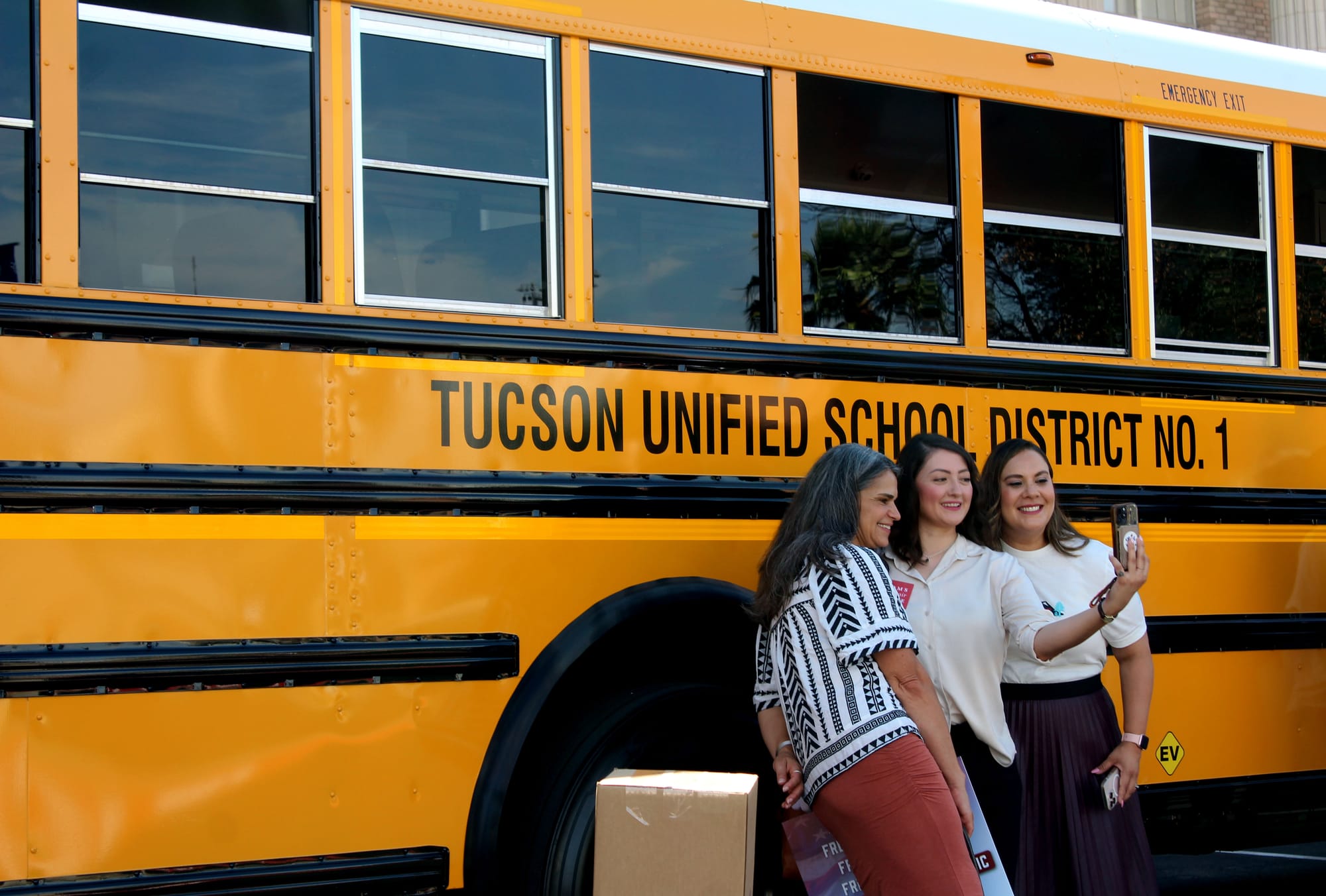
Electric school buses are a tangible change TUSD students can see every day, he said.
“Climate affects everyone and everything,” Sanghi said. “I think there is no future without addressing the climate crisis and I can’t really imagine a future if every city gets hotter every single day.”
Even with the setback at the federal level, Sanghi said the early success of the program shows that local action can still make a meaningful impact.
“Despite what’s happening at the federal level and despite that these programs are being paused, we’re still pushing forward and we still found money to get this passed,” he said.
Arizona House Rep. Priya Sundareshan said she remembers riding to school on diesel buses, adding that she would have loved to see a line of electric buses.
“This is a moment of leadership,” Sundareshan said. “What if we had been able to not experience that packed section of smokey, smelly air? That would have been amazing.”
Sundareshan thanked local leadership and the Biden administration for investing in initiatives that help school children breathe fresh air.
“That’s the freedom to breathe,” she said.
Sundareshan and others urged attendees to email or call their representatives by Sept. 22 and voice their concerns about the EPA rollbacks.
Arilynn Hyatt is a journalism major at the University of Arizona and Tucson Spotlight intern. Contact her at arilynndhyatt@arizona.edu.
Tucson Spotlight is a community-based newsroom that provides paid opportunities for students and rising journalists in Southern Arizona. Please consider supporting our work with a tax-deductible donation.

